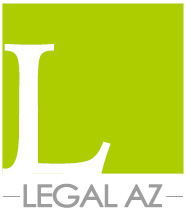One of the most important tools for sophisticated estate planning is the Revocable Living Trust. When properly prepared by an estate planning attorney, a trust provides exceptional advantages to individuals and their families. However, for many facing the task of planning their estate, the idea of paying an estate planning attorney for such documents appear to be expensive (especially when trusts and wills can be found online or from other inexpensive sources). You might wonder, “Why not use the inexpensive trust readily available from a document preparer? Why seek out a professional when I could prepare the documents myself?”
Here are some points to consider:
|
Characteristics of a Quality The Attorney Helps with Funding. A Living Trust must be “funded” by transferring most or all the client’s assets into the name of the trust. Failing to fund the trust means that the trust has no assets, and therefore amounts to a useless stack of paper. Document preparers and many attorneys offer little to no guidance or support when it comes to funding the trust. A quality estate planning attorney will ensure that the client’s trust is funded so that the trust actually becomes operative. The Living Trust is Part of a Comprehensive Package. A professional Estate Planning Attorney will prepare a client’s estate not just for death, but for incapacity or disability as well. The final product should include healthcare and financial powers of attorney, with each document working in harmony with one another. |
The Difference Between Flimsy, form-based trusts lack certain crucial features that could result in unnecessary expenses and serious legal difficulties. Robust, properly prepared trusts include the following: Comprehensive Trustee Powers: Flimsy trusts generically give the trustee “general powers” to administer the trust. Many banks and investment firms will NOT cooperate when the trust does not contain specific trustee powers. A robust trust articulates each and every possible power a trustee could reasonably need. Tax-Saving Options: Estate taxes are volatile and subject to yearly legislative changes. Robust trusts provide flexible tax-saving strategies that protect the estate in spite of changes in the estate tax limit or changes in the client’s financial situation. Special Needs Provisions: Public benefit programs such as SSI and Medicaid can become precious resources to people who have special needs or disabilities. A robust trust will protect beneficiaries who may need to rely on public benefits, whereas a flimsy, generic trust might actually end up disqualifying the beneficiary, resulting in a loss of essential benefits. Cutting-Edge Updates: Outdated software and fill-in-the-blank forms rely on stale strategies and aging laws. Such inadequacies often do not surface until after a person’s death, when it is too late to fix these problems. The heirs will have to “pick up the pieces” of the estate and muddle through the murky world of probate. Robust trusts are prepared with state-of-the-art software that reflects the most recent changes in state and federal law. |
BE SURE TO ATTEND ONE OF OUR FREE EDUCATIONAL SEMINARS
Legal Estate Planning Basics Seminar”
See the Seminars link for current information.

